 01:00:00
01:00:00
‘Against images made by hands’: Florence Nightingale’s reluctant life in portraiture
Florence Nightingale disliked having her portrait taken as much as she hated being a celebrity, yet it was largely through the visual representations of her face and person in the press that she gained iconic status in Victorian England. Used as a mo....
More details | Watch now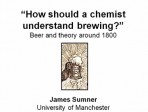 00:43:00
00:43:00
‘How should a chemist understand brewing?’ Beer and theory around 1800
Eighteenth-century chemists could gain useful income and patronage as advisors to industry – and some of the wealthiest and most influential industrialists were brewers. Making chemical knowledge credible to this audience, however, was not always e....
More details | Watch now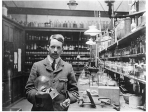 00:42:00
00:42:00
‘Sacrifice of a genius’: Henry Moseley’s role as a Signals Officer in WWI
Henry Gwyn Jeffreys Moseley (1887-1915) was one of the foremost English physicists of the early twentieth century. Probably best remembered for his immense contributions to chemistry and atomic physics in the years immediately prior to the outbreak o....
More details | Watch now 00:47:00
00:47:00
‘Behold a New Thing in the Earth!’: Reflections on Science at the Great Exhibition
The Great Exhibition of 1851 has routinely been portrayed as a celebration of science, technology, and manufacturing. However, for many contemporaries – including Prince Albert – it was a deeply religious event. In analysing responses to the Exhi....
More details | Watch now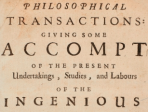 01:11:00
01:11:00
(Re)Inventing science publishing: the Philosophical Transactions of the Royal Society
Philosophical TransactionsÊis the worldÕs first and oldest scientific journal. Still published by the Royal Society, it is about to mark its 350th anniversary, and was instrumental in establishing many forms and facets of modern scholarly publishin....
More details | Watch now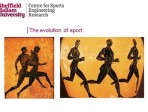 01:29:00
01:29:00
A high jump for science
Sport science is a discipline young in its years compared to medicine and astronomy but over recent years the pursuit of excellence in sport has driven it on. As we approach the London 2012 Olympics we look at what developments have been made in this....
More details | Watch now 00:44:00
00:44:00
A history of autism: my conversations with the pioneers
In this talk, Adam Feinstein will describe two fascinating journeys of discovery: his travels around the world for his new book, speaking to the key pioneers in the history of autism - including close colleagues and relatives of Leo Kanner and Hans A....
More details | Watch now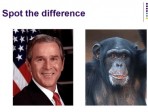 01:16:00
01:16:00
A molecular window into speech and language
Our capacity for complex speech and language remains one of the most intriguing aspects of being human. It has long been suspected that some answers to this enigma will be found buried within the genome. With recent advances in genetic technologies, ....
More details | Watch now 01:01:00
01:01:00
A natural history of scientists
For most of his life, Richard Fortey, has worked with collections in London's Natural History Museum, so curation has become a kind of unbreakable habit for him. In his Michael Faraday Prize lecture he will present another collection: his own persona....
More details | Watch now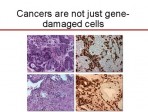 00:52:00
00:52:00
A silent killer?
In communicating the challenges and hopes for the future, Professor Fran Balkwill of Queen Mary's School of Medicine and Dentistry will demonstrate how cancer scientists can help patients and their families, as well as inspire young people to take up....
More details | Watch now 01:14:00
01:14:00
About Time
'If you knew Time as well as I do,’ the Mad Hatter says to Alice, ‘you wouldn’t talk about wasting it. It’s him.’ In this event, three writers well-acquainted with time discuss how it (or he) both controls and captivates us. Dame Gillian ....
More details | Watch now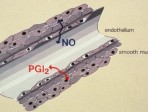 01:09:00
01:09:00
Adventures in vascular biology
Thirty years ago it was thought that the endothelium, a layer of thin, flat cells that line the interior surface of blood vessels was inert. However, major discoveries since then have demonstrated that it is a highly metabolic organ involved in maint....
More details | Watch now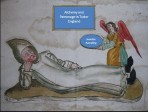 00:39:00
00:39:00
Alchemy and patronage in Tudor England
Dr Jenny Rampling, Dept. of History and Philosophy of Science, Cambridge. In early modern England, alchemical practitioners employed a range of strategies to win the trust and support of powerful, even royal, patrons: from the preservation of healt....
More details | Watch now 00:46:00
00:46:00
Augmented intelligence: the Web and human computation
This talk is about harnessing human time and energy to address problems that computers cannot yet solve. Although computers have advanced dramatically in many respects over the last 50 years, they still do not possess the basic conceptual intelligenc....
More details | Watch now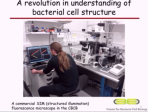 01:10:00
01:10:00
Bacterial cell walls, antibiotics and the origins of life
The cell wall is a crucial structure found in almost all bacteria. It is the target for our best antibiotics and fragments of the wall trigger powerful innate immune responses against infection. Surprisingly, many bacteria can switch almost effortl....
More details | Watch now 01:30:00
01:30:00
Behaving badly
Are environment, or genetics, more to blame when a human being turns to a life of crime? What does it mean to be criminally insane? And how effectively can a criminal tendency be treated with drugs? What different lights can literature and science sh....
More details | Watch now 00:55:00
00:55:00
Benjamin Franklin in Europe: electrician, academician etc.
Benjamin Franklin, American patriot and natural philosopher, was born 300 years ago. Apart from a brief stay in England as a young man, he spent the first fifty years of his life transforming himself from a nobody into the leading citizen of Philadel....
More details | Watch now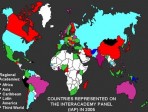 01:19:00
01:19:00
Beyond the human genome project
Dr Lander and his colleagues have developed many of the key tools and generated many of the key information resources for modern mammalian genomics. Their work includes mapping and sequencing of the human, mouse, and other genomes. He was elected a m....
More details | Watch now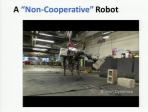 00:24:00
00:24:00
Bioinspiration: something for everyone
George Whitesides is the Woodford L. and Ann A. Flowers University Professor of Chemistry at Harvard University. Best-known for his work in NMR spectroscopy, organometallic chemistry, molecular self-assembly and nanotechnology, here he introduces sof....
More details | Watch now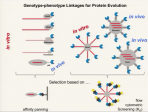 00:32:00
00:32:00
Bioinspired genotype–phenotype linkages
Florian Hollfelder is based in the Department of Biochemistry at the University of Cambridge. He is interested in mechanism in chemistry and biology. Here he describes using principles of natural selection to make functional proteins.
More details | Watch now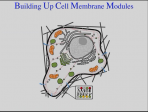 00:34:00
00:34:00
Bioinspired membrane-based systems
Directrice de Recherche Patricia Bassereau, Institut Curie Centre de Recherche Laboratorie Physico-Chimie, France, speaks on bioinspired membrane-based systems for a physical approach of cell organization and dynamics: usefulness and limitations.
More details | Watch now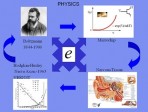 01:07:00
01:07:00
Bioinspired technology: from cochlear implants to an artificial pancreas
Biology is inspiring technology, which in turn replaces biology. This global trend towards ageing populations, less active lifestyles and fast-food diets, is leading to more cases of, and earlier onset of, chronic conditions such as Type 2 diabetes a....
More details | Watch now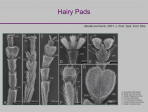 00:33:00
00:33:00
Biomimetic adhesive microstructures
Stanislav Gorb is Professor of Zoology at the University of Kiel, Germany, with an interest in functional morphology and biomechanics. Here he discusses clustering as a form of self-assembly, and applications in adhesion.
More details | Watch now 01:12:00
01:12:00
Brain development and brain repair.
The human brain is made up of close to a trillion nerve cells (or neurons), each of which makes connections with, on average, hundreds of other nerve cells, to form the complex neuronal circuits that control all brain activities, including perception....
More details | Watch now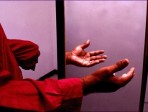 01:20:00
01:20:00
Brain function: synesthesia and phantom limbs
Professor Ramachandran examines problems that lie at the interface between neurology and psychiatry. He explains how phantom limbs may be used as a probe to understand brain functions and will also discuss synesthesia, a condition in which sounds and....
More details | Watch now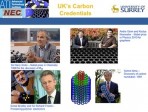 01:01:00
01:01:00
Carbon electronics
From structure and topology, to mechanical and electronic properties, a seemingly simple change in bonding between carbon atoms can conceive a plethora of material types. With diamond and graphite known since antiquity, better understanding of the sy....
More details | Watch now 01:02:00
01:02:00
Carbon storage: caught between a rock and climate change
Bakerian Prize Lecture by Professor Herbert Huppert FRS Institute of Theoretical Geophysics at the University of Cambridge. Since the formation of the Earth, the global mean surface temperature, carbon dioxide (CO2) and methane content of the at....
More details | Watch now 00:47:00
00:47:00
Chasing Venus: the race to measure the heavens
New York Times Best Selling and award-winning author Andrea Wulf tells the extraordinary story of the first global scientific collaboration set amid warring armies, hurricanes, scientific endeavour and personal tragedy. On 6 June 1761 and 3 June 1769....
More details | Watch now 01:07:00
01:07:00
Climate change and extinction
Today countless protected areas for biodiversity are maintained at huge public and private expense. The question we must consider is whether our protection strategies actually protect when the real threats are related to the current climate change. M....
More details | Watch now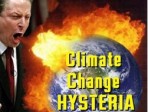 01:05:00
01:05:00
Climate change on the living Earth
Observations from around the Earth suggest that even the gloomiest predictions of climate change from the 2007 IPCC report may underestimate the seriousness of the changes due this century. In this lecture, Professor James Lovelock discusses the cons....
More details | Watch now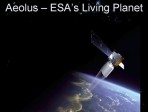 00:47:00
00:47:00
Climate change: space and our own planet.
Dr Maggie Aderin develops instruments that monitor climate change. Find out about these and other missions that are making science count in the battle against climate change. With practical experiments to show how climate change works Maggie shows ho....
More details | Watch now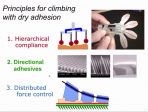 00:26:00
00:26:00
Climbing with adhesion
Mark Cutkosky is Fletcher Jones Professor of Mechanical Engineering at Stanford. Here he discusses climbing robots and how they can take their cue from nature.
More details | Watch now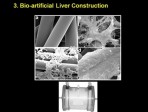 01:04:00
01:04:00
Cloning, stem cells and regenerative medicine
Extraordinary opportunities to study the molecular mechanisms that cause inherited diseases are being provided by new methods of producing stem cells. Hear about not only the potential value of these new methods, but also how their development was pr....
More details | Watch now 01:07:00
01:07:00
Cognitive enhancing drugs: neuroethical issues
Cognitive enhancing drugs are used to treat neuropsychiatric disorders such as Alzheimer's disease, schizophrenia and attention deficit hyperactivity disorder. These drugs improve the quality of life and wellbeing for patients and their families.
More details | Watch now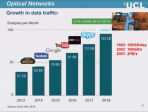 01:04:00
01:04:00
Communicating with light
Most of the data we generate and receive (whether emails, tweets, videos or mobile calls) are now carried by optical fibres, which use light to transmit vast quantities of information over trans-oceanic distances. The use of hundreds of wavelengths ....
More details | Watch now 00:17:00
00:17:00
Complex Quantum Systems and Number Theory
The last few years have seen the emergence of remarkable connections between fluctuation statistics in complex quantum systems and some long-standing and important problems in number theory, such as the distribution of the primes. They are still myst....
More details | Watch now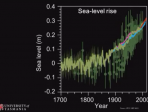 01:05:00
01:05:00
Continental loss: the quest to determine Antarctica’s contribution to sea-level change
For over 50 years scientists have been working to understand Antarctica’s contribution to sea level. For much of this time there has even been disagreement about if this massive ice sheet is growing or shrinking. In 2012, advances in data analysis....
More details | Watch now 00:56:00
00:56:00
Continuing the voyages of the Endeavour
NASA Administrator Mike Griffin's address applies certain lessons learned from one of the Royal Society's greatest explorers to the endeavours NASA is carrying out today in exploring the planets, moons, asteroids, and comets of our solar system and o....
More details | Watch now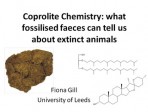 00:29:00
00:29:00
Coprolite Chemistry – what fossilised faeces can tell us about extinct animals
Faeces contains a complex mixture of chemical compounds, including substances from the diet and digestive processes. By better understanding the biology of extinct animals we can gain insights into how they interacted with their environment and poten....
More details | Watch now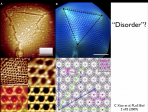 00:33:00
00:33:00
Crystals: animal, vegetable or mineral?
Stephen Hyde is Professor in the Department of Applied Mathematics and the Research School of Physics and Engineering at the Australian National University in Canberra. Taking the popular children's game as a starting point, he asks whether crystalli....
More details | Watch now 01:14:00
01:14:00
Cuckoos and their victims
The sight of a little warbler feeding an enormous cuckoo chick has astonished observers since ancient times. It was once thought that cuckoos were unable to raise their own young because of defective anatomy and behaviour, and so other birds were onl....
More details | Watch now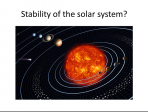 01:26:00
01:26:00
Curious maths: finding the solution
Unsolved problems in mathematics have intrigued us for centuries. It took over 350 years for anyone to provide a proof for Fermat's Last Theorem, considered by many as the most notorious problem in the history of mathematics, and no one has yet offer....
More details | Watch now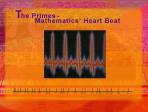 01:26:00
01:26:00
Curious maths: finding the solution
Unsolved problems in mathematics have intrigued us for centuries. It took over 350 years for anyone to provide a proof for FermatÕs Last Theorem, considered by many as the most notorious problem in the history of mathematics, and no one has yet offe....
More details | Watch now 01:01:00
01:01:00
Dark, clowdy and impertinent’ – Thomas Browne’s scientific language
Succulent, cretaceous, technology, parasitical, electricity . . . Scientific investigation in the seventeenth century generated new ideas, and scientists needed new words to express them. Experimentalists, observers, collectors, and technicians all c....
More details | Watch now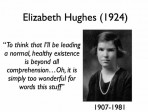 01:12:00
01:12:00
Deciphering disease: cells and disruption of their communication
The human body may seem to be no more than a bundle of tissues and organs, yet the cells these are made from are capable of interacting, communicating and performing complex tasks. Our cells' capacity to interact in this way enables humans to adapt t....
More details | Watch now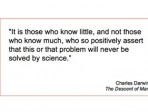 01:06:00
01:06:00
Decoding consciousness
Everything we know about the world comes to us through our brain. Yet for each of us our own conscious mental world of thoughts and feelings is isolated and private. Despite centuries of research, language or gesture remains the only way we can disco....
More details | Watch now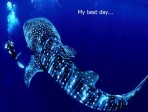 00:33:00
00:33:00
Deep sea discoveries
Recent underwater images show that the deep sea realm of the British Isles is nothing like the monotonous expanse of mud that many people imagine. Spectacular coral reefs, once thought to be restricted to the tropics, are now known to occur in the ch....
More details | Watch now 00:44:00
00:44:00
Defining nature’s limits: Prosecuting magic in sixteenth-century Italy
Magic and science have traditionally been considered to have little in common. Yet for many sixteenth-century intellectuals, including churchmen, practising magic was based upon highly sophisticated knowledge of the natural world. For ecclesiastical ....
More details | Watch now
